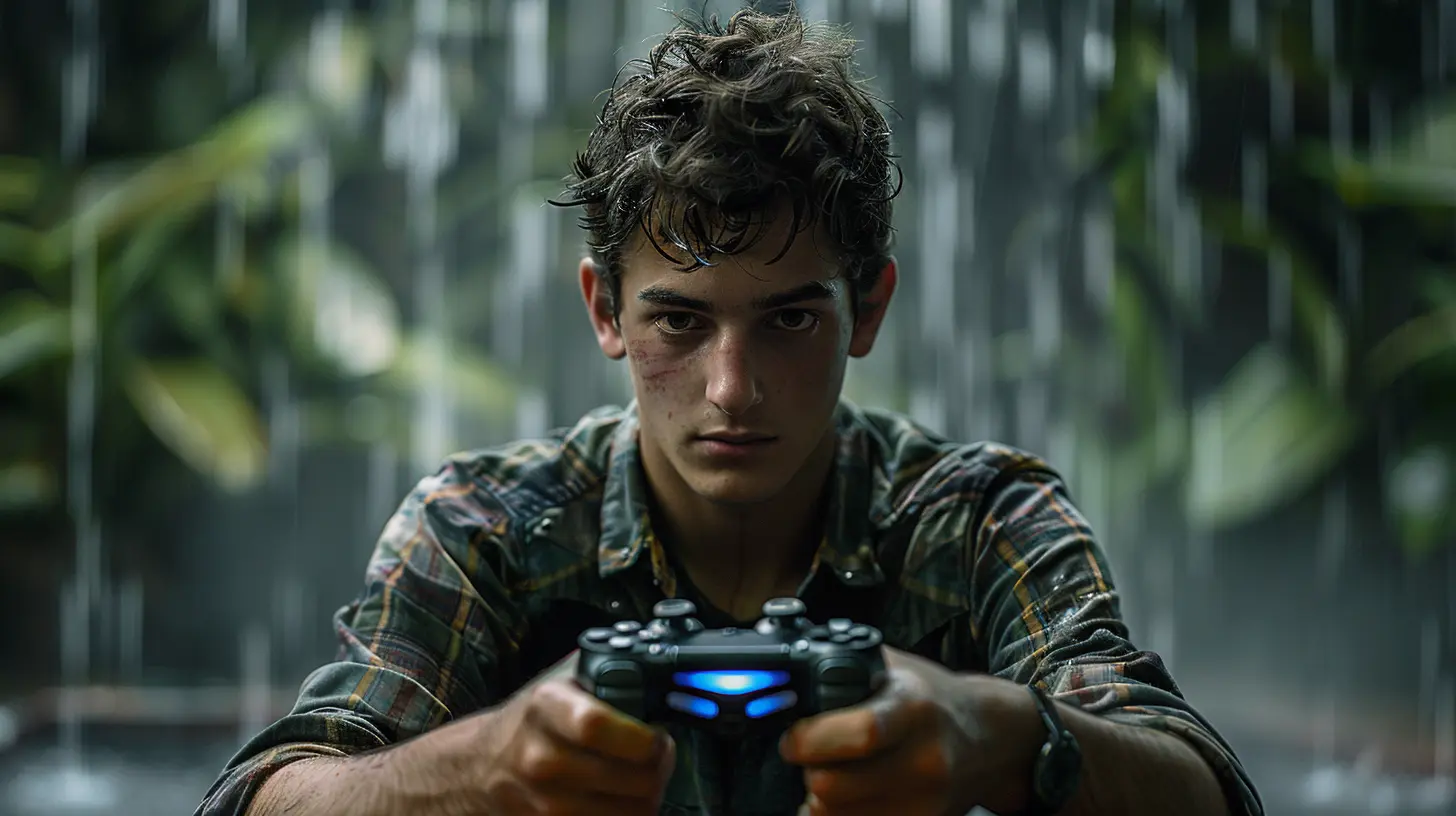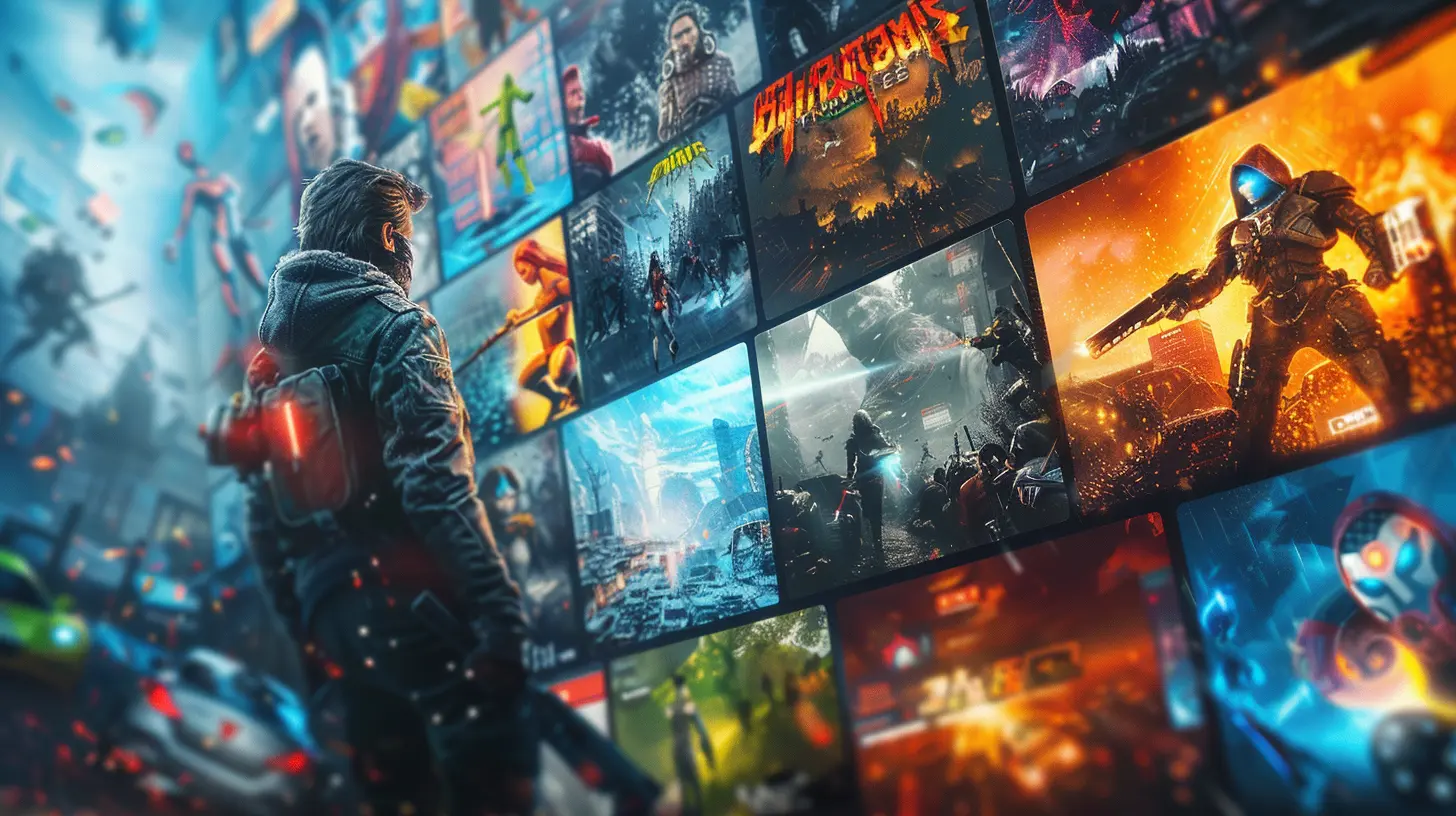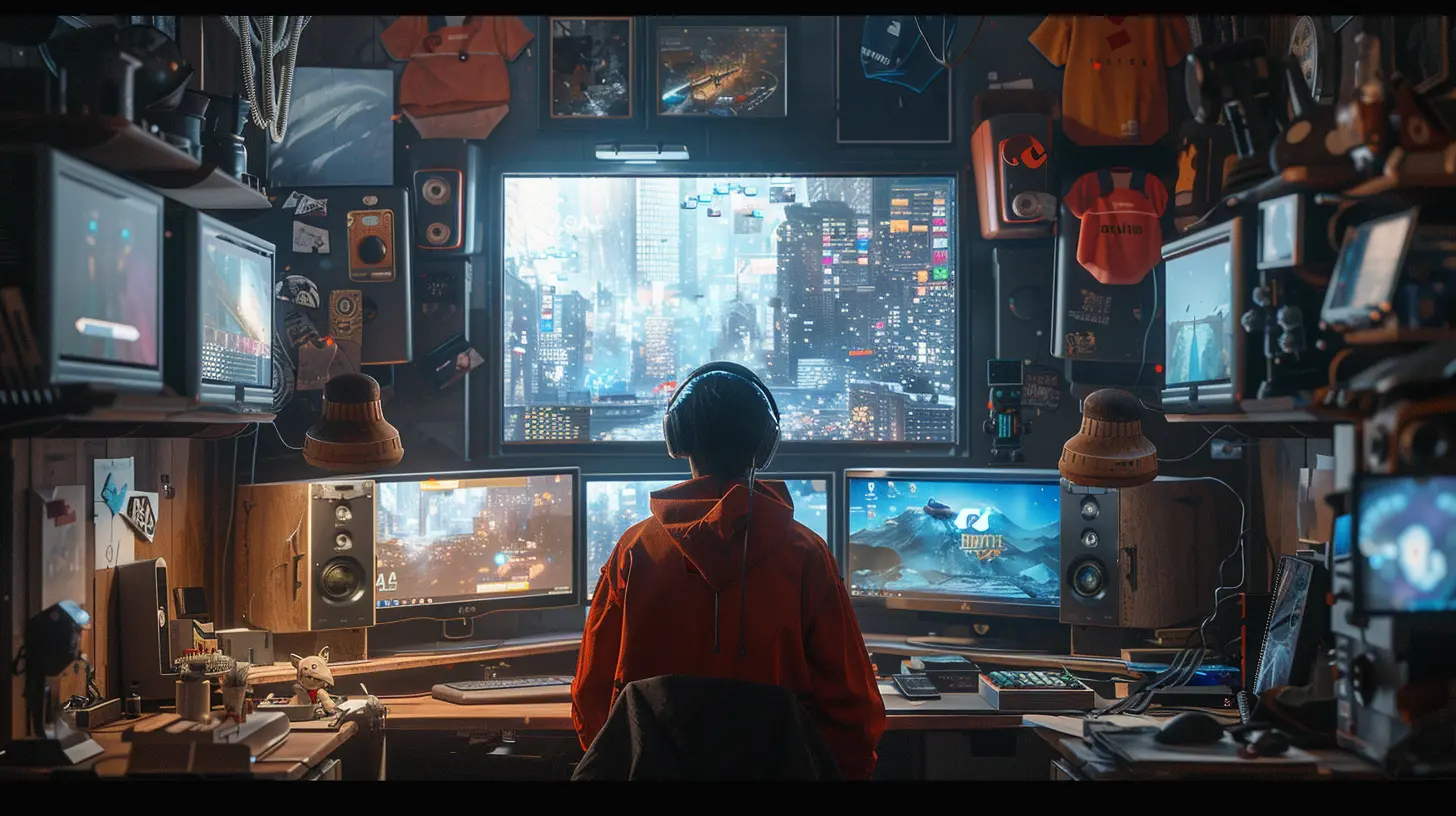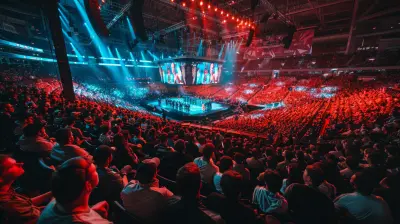Immersive Worlds: A Deep Dive into the Latest Open-World RPG
22 December 2024
Imagine stepping into a world where the horizon stretches endlessly, your choices shape the narrative, and every interaction feels personal. That's the magic of open-world RPGs. Over the years, these games have evolved into sprawling masterpieces, offering players unmatched freedom and depth. If you’ve ever lost track of time wandering through a dense forest, raiding an ancient temple, or chatting with a quirky, slightly suspicious NPC, you know exactly what I’m talking about.
In this article, we’re going to take a heartfelt look at how modern open-world RPGs are redefining what it means to immerse yourself in a game. From stunning visuals to intricate storytelling, let's break down the elements that make these games unforgettable.
What Makes Open-World RPGs so Special?
Have you ever read a really good book or watched a gripping TV series where you almost feel like you’ve lived it? Open-world RPGs do the same thing but throw in the bonus of you being in control. It’s like being handed the keys to a brand-new universe and being told, “Go crazy.”At their core, these games are about freedom. Want to spend hours crafting the perfect sword? Go for it. Feel like ignoring the main quest to climb mountains just to see the sunrise? No one’s stopping you. The beauty of open-world RPGs is that they cater to you. They’re designed with your curiosity and choices in mind.
The Magic Formula: Storytelling + Freedom
Modern open-world RPGs have nailed the delicate balance of storytelling and freedom. It's a tricky thing to pull off—let’s face it, giving players too much freedom can sometimes make the story feel disjointed. But developers today have managed to weave narratives so intricately that even side quests feel meaningful.Take games like The Witcher 3: Wild Hunt or Elden Ring, for example. Both encourage you to go off the beaten path, yet somehow every detour feels like it matters. Whether you’re helping an old villager find a lost heirloom or unraveling the mysteries of strange ruins, the stories stick with you. It’s like every corner of the map has its own tale to tell, adding layer upon layer to the world’s lore.
The Evolution of Open-World RPGs
The concept of open-world RPGs isn’t new; the seeds were planted back in the ‘80s with early computer games like Ultima. But let's be real—the pixelated landscapes were more “charmingly clunky” than immersive. Fast forward to today, and the genre has grown into something staggering.Graphics That Drop Your Jaw
Let’s talk visuals. Have you noticed how modern open-world RPGs don’t just look realistic—they feel alive? Developers now use advanced lighting techniques, motion capture, and even AI to create worlds that feel authentic. Games like Horizon Forbidden West make you want to pause mid-quest just to admire the shimmering water or the way the sunlight filters through the trees. It’s like walking into a painting, except you can actually interact with it.And it’s not just about how the game looks—it’s about how it reacts to you. Dynamic weather systems, changing day-night cycles, and NPCs who have their own schedules make these worlds feel seamless. If it suddenly starts raining while you’re trekking through a jungle, you might notice puddles forming on the ground or animals seeking shelter. Little details like these make you feel like the world actually exists and doesn’t just revolve around you.
AI-Driven NPCs
Let’s be honest—nothing breaks immersion faster than running into an NPC that feels more wooden than a 2x4. Fortunately, developers have upped their game (pun intended) when it comes to creating lifelike characters. In modern open-world RPGs, NPCs have personalities, agendas, and reactions that feel human.Take Cyberpunk 2077, for instance. Sure, the launch was rocky, but the characters? Flawless. Whether they’re offering you a side quest or just making conversation at a bar, it feels like they’re genuinely alive. Some NPCs even adapt to your choices, which makes every decision weigh a little heavier.
Customization: Making the World Feel Like Yours
One of the best parts of open-world RPGs? They let you own the experience. Whether it’s through character creation, crafting weapons, or building your own settlement, modern games are all about personalization.Games like Skyrim set the standard with robust character creation tools that let you tweak everything from your hairstyle to your moral alignment. But now, games are taking it further. Think of Elden Ring and its sprawling skill tree or Assassin’s Creed: Valhalla letting you raid villages, upgrade your homestead, and even choose the decor for your longhouse. It’s not just about playing in the game’s world—it’s about leaving your mark on it.
The Rise of Multiplayer Open-World RPGs
Here’s the thing: while solo adventuring is great, sometimes you just want to share the experience with friends. Enter multiplayer open-world RPGs. They take everything we love about the genre—freedom, storytelling, customization—and let us enjoy it with others.Games like Genshin Impact or Elder Scrolls Online are prime examples. Whether you’re teaming up to fight a boss or just exploring a new region together, these games add a social layer that makes the experience even more engaging. Plus, multiplayer often means fresh content and updates, keeping the game alive long after its initial release.
Challenges in Open-World RPGs
Let’s not sugarcoat things—open-world RPGs aren’t perfect. Sometimes, their massive scope leads to overwhelming maps (you know, the kind that are littered with more icons than you can count). And let’s not even talk about bugs—nothing ruins immersion like falling through the ground mid-quest.But here’s the thing: these challenges are a testament to just how ambitious these games are. Developers are essentially creating miniature worlds—they’re bound to have a few hiccups. And honestly? Players are usually willing to forgive a bit of jank in exchange for the chance to explore such incredible universes.
What the Future Holds
So, what’s next for open-world RPGs? It feels like every year, developers are raising the bar higher. With advancements in technology like ray tracing, AI-driven storytelling, and even VR, the line between player and game is getting blurrier by the day. Imagine putting on a headset and actually standing in the middle of a bustling medieval town or navigating a post-apocalyptic wasteland with your own two feet.There’s also the shift towards player-driven narratives. Imagine a game where your decisions don’t just shape the story—they shape the world. Picture cities crumbling because of your choices or entire civilizations thriving because of your actions. If that doesn’t sound like next-level immersion, I don’t know what does.
Why We Keep Coming Back
At the end of the day, open-world RPGs scratch an itch that few other genres can. They satisfy our sense of adventure, let us escape the mundane, and give us a playground where anything feels possible. Whether you’re riding into battle, sneaking through enemy territory, or just watching a sunset from a cliffside, these games remind us why we fell in love with gaming in the first place.If you haven’t played one in a while, do yourself a favor—pick one up. Dive into a world where you call the shots, where every corner begs to be explored, and where the stories you create will stay with you long after you’ve put the controller down.
all images in this post were generated using AI tools
Category:
Game ReviewsAuthor:

Kaitlyn Pace
Discussion
rate this article
13 comments
Simon Wilkerson
Exploring immersive worlds in open-world RPGs opens limitless possibilities for adventure and discovery. Let your imagination soar as you embark on epic quests and forge your unique path!
February 6, 2025 at 5:34 AM

Kaitlyn Pace
Absolutely! Open-world RPGs truly allow players to unleash their creativity and embark on unforgettable journeys.
Milena Ford
This article brilliantly captures the magic of open-world RPGs, highlighting their immersive storytelling and expansive environments that enhance player engagement.
January 28, 2025 at 4:27 PM

Kaitlyn Pace
Thank you! I'm glad you enjoyed the exploration of how open-world RPGs create such captivating experiences. Your appreciation means a lot!
Inez Coleman
Forget reality! I’m ready to hug a dragon and barter with squirrels in pixelated paradise!
January 25, 2025 at 4:25 PM

Kaitlyn Pace
Embrace that spirit! Immersive worlds allow us to escape and explore the fantastical—hugs with dragons and trade with squirrels await!
Darby Nguyen
Open-world RPGs redefine gaming; immersion at its peak!
January 22, 2025 at 4:33 PM

Kaitlyn Pace
Thank you! Open-world RPGs truly elevate immersion, allowing players to lose themselves in richly crafted worlds.
Esther Long
This article beautifully captures the magic of open-world RPGs. Your insights into immersive storytelling and dynamic environments truly resonate with gamers seeking adventure and depth. Thank you for highlighting the impact these worlds have on our experiences—it's a reminder of why we love gaming!
January 18, 2025 at 4:00 PM

Kaitlyn Pace
Thank you for your kind words! I'm glad you found the article resonant and appreciate the magic of open-world RPGs as much as I do. Happy gaming!
Delta Strickland
Step into boundless adventures where every choice shapes your fate! The latest open-world RPGs redefine storytelling, inviting us to explore like never before. Game on!
January 14, 2025 at 4:27 PM

Kaitlyn Pace
Thank you! I'm excited to explore how these RPGs offer unprecedented freedom and storytelling depth. Game on indeed!
Annette Gilbert
“Open-world RPGs: where I can fight dragons, save the universe, and still forget where I parked my imaginary horse. Priorities, right?”
January 13, 2025 at 3:27 AM

Kaitlyn Pace
Haha, absolutely! Balancing epic adventures with everyday challenges is what makes open-world RPGs so relatable and fun.
Bianca Holland
Great article! I appreciate the insights into the evolving mechanics of open-world RPGs. The emphasis on immersive storytelling and player agency really highlights what makes these games special. Looking forward to exploring the titles mentioned and experiencing their worlds firsthand. Thank you!
January 10, 2025 at 4:43 AM

Kaitlyn Pace
Thank you for your kind words! I'm glad you found the insights valuable. Enjoy your adventures in those immersive worlds!
Jacqueline Klein
Open-world RPGs redefine immersion; gameplay depth keeps us coming back!
January 3, 2025 at 5:21 PM

Kaitlyn Pace
Thank you! I'm glad you appreciate the depth and immersion that open-world RPGs offer. They truly elevate our gaming experiences!
Zaid Barnes
Open-world RPGs transport us to realms of endless possibilities! Embrace the adventure, explore every corner, and let your imagination soar. The immersive experiences ahead are waiting to be discovered. Dive in and unleash your inner hero!
December 30, 2024 at 4:40 AM

Kaitlyn Pace
Absolutely! Open-world RPGs truly expand our horizons, inviting us to explore, create, and embark on unforgettable adventures. Let's dive into these immersive worlds together!
Fleur Baker
Absolutely loved this article! 🌟 The exploration of immersive worlds in open-world RPGs is so exciting! It’s amazing how these games can transport us to new adventures. Can't wait to dive into the latest titles! 🎮✨
December 26, 2024 at 4:12 PM

Kaitlyn Pace
Thank you so much! I'm thrilled you enjoyed the article and share the excitement for these immersive adventures! Happy gaming! 🎮✨
Jessica Barnes
This article offers a compelling exploration of the latest advancements in open-world RPGs. The analysis of immersive environments and storytelling techniques is insightful, providing valuable perspectives for both gamers and developers. It successfully highlights the genre's evolution while acknowledging its challenges.
December 26, 2024 at 4:38 AM

Kaitlyn Pace
Thank you for your thoughtful feedback! I'm glad you found the analysis valuable and insightful. Your support means a lot!
Zephyrian Lynch
What a fantastic exploration of open-world RPGs! It's amazing how these immersive worlds draw us in and spark our imaginations. Whether you're battling dragons or forging alliances, let every quest remind you that adventure is just a game away. Happy gaming, and may your journeys be epic! 🎮✨
December 25, 2024 at 4:02 AM

Kaitlyn Pace
Thank you for your kind words! I'm glad you enjoyed the exploration of these immersive worlds. Happy gaming and may your adventures be epic too! 🎮✨
MORE POSTS

Platforming Perfection: The Best Jumping Adventures Out Now

How Mods Keep Multiplayer Communities Thriving

The Role of Shoutcasters and Analysts in Bringing E-Sports to Life

Modding Sci-Fi Games: Expanding Your Universe

Puzzle Over This: Brain-Bending Games Worth Your Time

Top Strategies for Winning in Your Favorite Social Games

The Legal Challenges Facing the E-Sports Industry

Post-Apocalyptic Adventures: Surviving the End of the World in Style

The Appeal of Scavenging in Open-World Survival Games